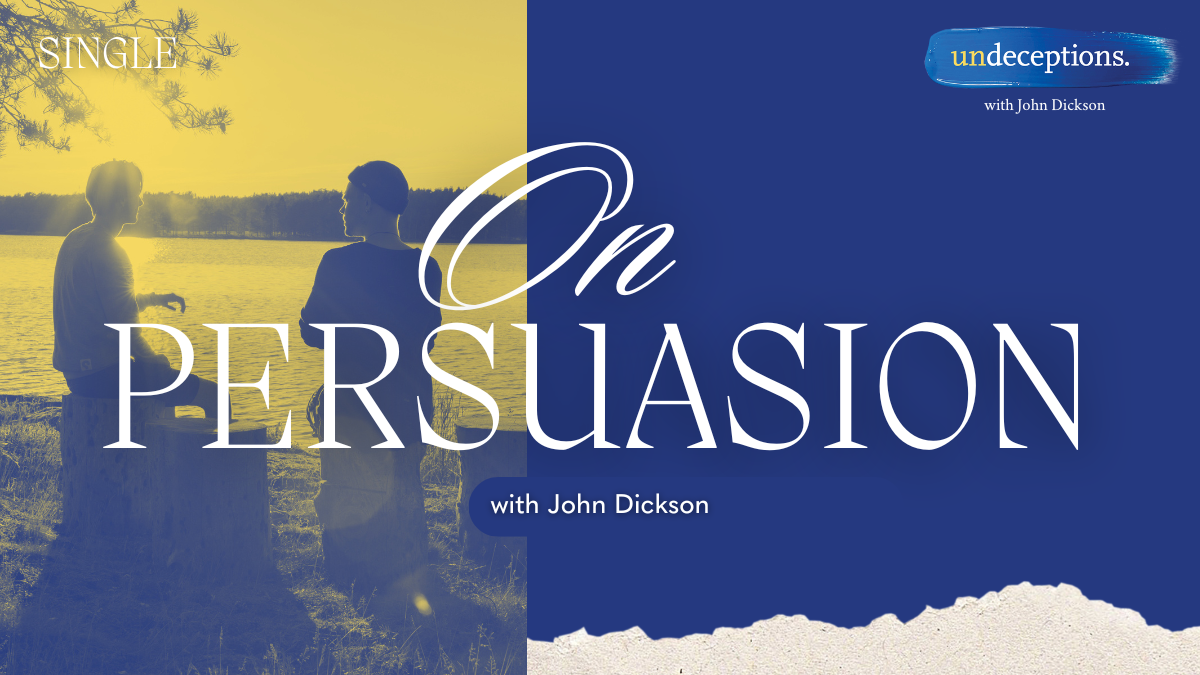Ben Shaw, my friend fighting a battle with cancer, his wife Karen and Oxford professor of clinical oncology, Tim Maughan in episode 13 of the Undeceptions Podcast all speak of God being present in the ugliness of the world. I think this is one of the most unusual aspects of what the Bible says about pain and suffering. The most pressing question for those actually experiencing pain isn’t “Why does God allow it?” but, “Where is he?”
I mean, when my daughter Josie hurts herself, she doesn’t rush and ask, “Dad, why the pain? How will it be resolved?” She just wants to cry. She wants to know that I’ve got her, that I’m with her, that I sympathise. The Old Testament in the Bible invites everyone who wants too, to cry out to God.
If it’s true that God knows our pain firsthand, because he’s experienced it, it follows that we don’t just shout at God as the one ultimately responsible for this universe. We can run to him for comfort, knowing that he’s been there, he understands. He’s got us.
My mate, Ben, mentioned Psalm 23: “The Lord is my shepherd,” and all that. But the Psalm immediately before it strikes a very different note. Psalm 22 opens with, “My God, my God, why have you forsaken me? Why are you so far from saving me? So far from my cries of anguish? My God, I cry out by day, but you do not answer.”
Pretty confronting stuff. It’s a reminder that sometimes crying out, “My God” is just as rational – just as permissible – as saying the “Lord is my shepherd”. The presence of Psalm 22 immediately before the more famous Psalm 23 tells us that God is okay with both. God invites us to cry out to him.
But the most extraordinary part of the Bible’s plot line is that God showed up in the ugliness, personally. He himself has experienced rejection, injury, agony, a final breath. And this is nowhere clearer than in the crucifixion scene in all of the Gospels. There, the cry of the anguished poet of Psalm 22 actually becomes the cry and circumstances of Jesus on the cross. In his final moments, Jesus searched for words to convey his innermost feelings and he cried Psalm 22. Mark 15 says, at the ninth hour Jesus cried out in a loud voice, “Eloi, Eloi, lema sabachthani” which means, citing Psalm 22, “My God, my God, why have you forsaken me?”
This is not a cry of self doubt from Jesus’ lips. This is a deliberate and agonising identification with the suffering poet of Psalm 22. And so with anyone who’s ever felt like crying, “My God, why?” this vision of God can comfort those who suffer, not just because he is all-knowing, but because he’s experienced pain firsthand. God isn’t passive, it turns out – not distant, but involved and himself wounded.
It’s a point made actually by one of the 20th century’s greatest atheists, the Frenchman Albert Camus. Camus usually wrote of the futility of life, the unrelenting silence of the universe. But he admitted that he saw in the cross a potential answer to human longing for divine sympathy. In his essay, which became a book, The Rebel, he wrote these words: “Christ, the God-man, suffers too. Evil and death can no longer be entirely imputed to him, since he suffers and dies. The night on Golgotha is so important in the history of man only because in its shadow, the divinity abandoned its traditional privileges and drank to the last drop despair included, the agony of death.”
Camus was an atheist, but he knew something about the core of the Christian faith. If it’s true that God knows our pain firsthand, because he’s experienced it, it follows that we don’t just shout at God as the one ultimately responsible for this universe. We can run to him for comfort, knowing that he’s been there, he understands. He’s got us.
Ultimately, that’s what Christianity offers us in our pain, in life’s ugliness. Not just some philosophy, but a story of the God who himself shares our wounds.
By John Dickson
5 Minute Jesus: God is present in the world’s ugliness
Want to hear the rest of the episode?
Check out episode 13: “It’s Cancer”















































